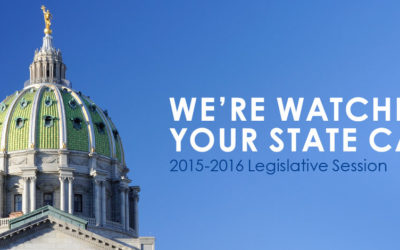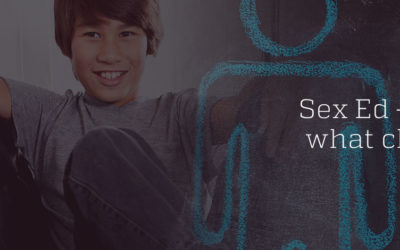Issue
Standards for Explicit Sexual Content in Schools
KEY POINTS
- School Boards are legally permitted to create policy setting standards for preventing age-inappropriate sexually explicit content in their curriculum and library.
- The standard ought not be: “As long as this book doesn’t land us in jail for giving it to a minor, the sexually explicit content is welcome in our curriculum or the school library.”
- Written policy protects students, parents, employees, and the school
and ensures better educational content will fill the finite space in curriculum and in libraries. - Schools should prioritize material that provides rich educational value over material that may provide similar value but also has age-inappropriate sexually explicit content.
- Age-Appropriate policies are not directed at viewpoint and are not banning the book from student possession. They are exercising the schools prerogative to determine what to include in its own library and curriculum.
Standards for Sexually Explicit Content in Schools
Schools must engage in line-drawing for age appropriateness of sexually explicit content in their library and curriculum. Criminal laws are one required line prohibiting schools from giving materials to minors in curriculum or library that a court deems pornographic or obscene. But what about sexually explicit content that does not rise to the extremely high bar of criminal law?
School boards are legally permitted to articulate standards that go beyond “would we land in jail for giving this book to a minor?” to prevent other age-inappropriate sexually explicit content in their curriculum and school library. Unfortunately, many schools have no policy standards for sexually explicit material beyond criminal law.
Schools with written age-appropriate standards for sexually explicit materials that differ for elementary, middle, and high schools protect students and ensures better educational content will fill the finite space in curriculum and in libraries.
But such written policies also protect the school’s staff and district from costly litigation. Even without written policy, a school librarian, principal, or school board is permitted to remove a particular title they deem age-inappropriate sexually explicit material. But with written policy standards, the school is less susceptible to baseless allegations that the title was removed for an impermissible viewpoint discriminatory reason.
School employees still have wide discretion to select and purchase books that comport with the age-appropriate standards in written policy set by the school board, and from that universe of materials, parents then have ultimate authority to make additional age-appropriate determinations for their own child and should have authority to restrict certain titles for their own child.
Individuals who desire to see sexually explicit materials in the hands of minors sometimes argue that such policies are “book bans.” Attempts at labeling common-sense school standards as “book bans” have been rejected by courts. See, C.K.-W. v. Wentzville R-IV Sch. Dist., 619 F.Supp. 3d 906, 909-910 (E.D. Mo. 2022) (“A school district does not ‘ban’ a book when, ‘through its authorized school board,’ it ‘decides not to continue possessing [a] book on its own library shelves.’”) Citing ACLU of Fla., Inc. v. Miami-Dade Cnty. Sch. Bd., 557 F.3d 1177, 1218 (11th Cir. 2009).
A parent, for example, who wants to buy sexually explicit books for their own child to read are not prevented from doing so by such school policies. School policies setting forth its own age-appropriate standards for sexually explicit content in its own curriculum and school library do not even prohibit a student from bringing their own book to school or from reading it in an appropriate time, such as study hall. But school districts do not have to put such explicit books in their own curriculum or in the school library, and such a decision by the school is not a ban on books.
Such policies treat inappropriate sexually explicit content the same regardless of whether the sexually explicit depictions or descriptions happen to be between straight, gay, or even a lone person. As such the argument made by those who desire to see sexually explicit materials in the hands of minors, that these policies are directed at LGBT people, is false.
Too many schools lack baseline standards regarding sexually explicit content in school libraries. Schools ought to spend the finite time in the day on academic excellence, and sexually explicit content detracts from that. Explicit sexual depictions and descriptions may sell, but refusal to purchase it is no ban. Districts can decide not to buy and stock sexually explicit content. If you are a school board member who desires to implement such a policy, we are glad to assist you.

Related Articles
Four Bills to Watch This Session
One of our event banners describes us well: "We're watching your state capitol." Today - January 20th - is the first day of the 2015-2016 legislative session. And we're already on the Hill, in the halls of power, fulfilling our partnership with YOU to protect the...
Press Release: Victory for the King’s Men, First Amendment Freedoms
(Philadelphia, PA) January 12, 2015 - The Independence Law Center went to court today and came out victorious on behalf of The King's Men, an organization that was sued by a sex-oriented business. Members of The King’s Men (thekingsmen.org) are a presence outside of...
Why These Courageous Men Are In Court
UPDATE: Federal court in Philadelphia ruled on 1/12/15 in our favor: the "adult" business agreed to have all charges they brought against The King's Men dismissed! Full story: pafamily.org/2015/01/victory-courageous-men-win-court-case Randall Wenger - our Chief...
12 Days of Christmas Contest Winners
Thank you to everyone who entered the PA Family Institute's "12 Days of Christmas" contest. We're happy to announce all of our winners: Book: Building a Strong Spiritual Family - Dennis & Barbara Rainey Alan W. - Lebanon Maryann J. - Perkasie Alfred M. - Lebanon...
What this 100-year-old Math Teacher Thinks About Common Core
This is what 100-year-old Elementary school math teacher Madeline Scotto thinks about Common Core: "How would you teach them 4 + 4? She told me you add this and subtract this and....THEY'RE MAKING IT MORE COMPLICATED as far as I'm concerned." "4 and 4....
12 Days of Christmas Contest
Win a signed book by Dr. Ben Carson or Dr. James Dobson! Pennsylvania Family Institute presents: The 12 Days of Christmas Contest Would you like an extra gift this Christmas season? To help celebrate Christmas and aligning with our mission to strengthen families,...
Three Ways to Support Pro-Life, Pro-Family Efforts in PA
Over the last quarter century, the PA Family Institute has grown to become Pennsylvania's leading pro-life, pro-family organization. Through the prayers and support of families across the state, we are humbled by the many ways we've been able to make a difference in...
Why are they teaching this to 10-year-olds?
The PA Family Institute has led the effort against mandating statewide "comprehensive sex education." Why? Recently the taxpayer-funded Oregon Adolescent Sexuality Conference held their 20th annual event where adult porn site reps showed 11-year-olds how to use sex...





